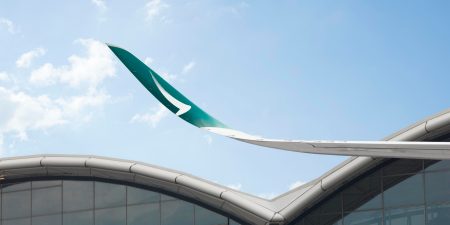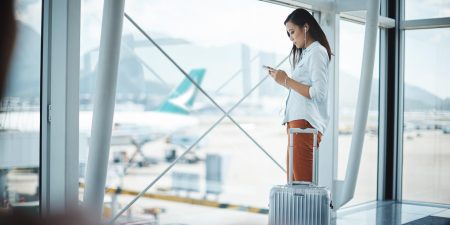Cathay Pacific 2014 Sustainable Development Report highlights efforts on carbon efficiency, biofuels, waste and biodiversity
“At Cathay Pacific we believe that life should be lived well, and that part of living well is to take a more sustainable approach that can help to preserve the environment for future generations. The Cathay Group’s sustainability strategy focuses on five key aspects, including our operations, people and communities, customers, suppliers and infrastructure,” said James Tong, Cathay Pacific Director Corporate Affairs.
“We continued to make progress on our sustainability performance last year, making a positive and far-reaching contribution to the sustainable development of our industry, the people and communities we serve, and the environment in which we live,” added James.
Highlights of Cathay Pacific’s sustainability progress in 2014 include:
Climate Change
As a consequence of the airline’s ongoing fleet modernisation and various flight efficiency measures, including switching off one aircraft engine while taxiing at the airport upon arrival and reducing the weight onboard, the Group’s fuel efficiency in 2014 improved by 4.5% in relation to passenger and cargo traffic carried (measured in revenue tonne kilometers, or RTKs) in 2013. This brought the total fuel efficiency improvement since 1998 to 22.8% per RTK.
In August 2014, the airline announced an investment in US-based sustainable biofuel developer Fulcrum BioEnergy Inc – the first such investment by a commercial airline – that signals a long-term commitment to sourcing a solution that will help reduce the airline’s carbon footprint. This initiative forms part of Cathay Pacific’s biofuel strategy that will help it achieve a target of carbon-neutral growth from 2020.
Waste Management
The Cathay Pacific Group serves around 93,400 passenger meals every day. The airline has implemented a number of measures to reduce food waste where possible, such as reusing food offcuts, recycling used cooking oil, and improving its meal planning process. To further help efforts to reduce food waste, a trial was run with Cathay Pacific Catering Services to donate unopened TetraPak juices from inbound flights to a local food bank, Feeding Hong Kong.
Various environmental inflight initiatives have been put in place, leading to the recycling of more than 500,000kg of glass, around 20,000kg of aluminum and over 40,000kg of plastic into materials that have a useful function in society – turning glass bottles collected from flights into paving bricks for pathways and roads is just one example.
Sustainable Sourcing
The airline’s passenger lounge at Charles De Gaulle (CDG) Airport, Paris, achieved LEED® certification to the Silver level for implementing practical and measurable strategies and solutions aimed at achieving a higher performance in sustainable site development, water savings, energy efficiency, materials selection and indoor environmental quality. The Paris lounge is the first and only airport lounge in the world to have received such certification to date.
The Group’s airlines carry more than 30 million passengers a year between them, which means that every sustainability improvement made to inflight products, equipment and meal services will quickly add up. To that end, in 2014 Cathay Pacific partnered with Business for Social Responsibility’s Centre for Sustainable Procurement to develop and trial a set of specially designed, simple comparative tools to assess the environmental impact of different materials used in the airline’s products. This is already helping the airline’s teams in the procurement of more environmentally friendly and sustainable products, such as lighter and reusable containers and cutlery for the inflight meal service.
Biodiversity
Cathay Pacific continued to engage with the International Union for Conservation of Nature’s Shark Specialist Group and TRAFFIC International to address technical issues and, in collaboration with other stakeholders, develop a cargo framework for helping to identify sustainable sources of shark-related products.
For a full detail of the Group’s sustainability efforts, explore the report’s interactive site at www.cathaypacific.com/sdreport










